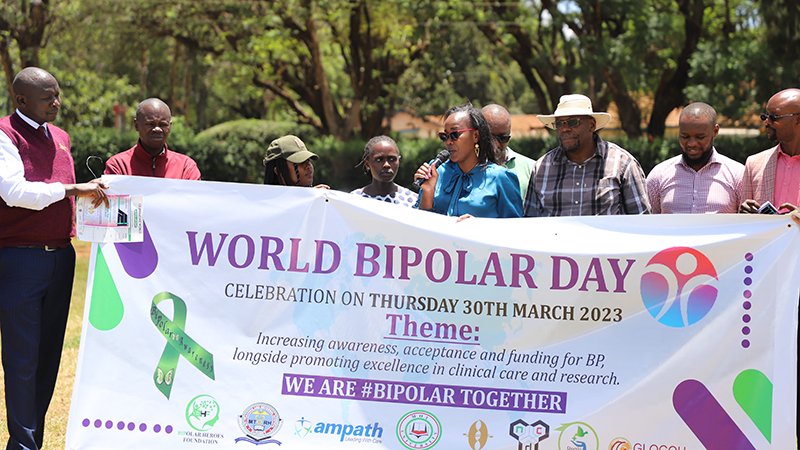There is No Health without Mental Health
Amplifying voices of persons living with mental illness to promote care access
World Bipolar Day is recognized each year on March 30th, the birthday of artist Vincent Van Gogh, who was posthumously diagnosed as likely having a bipolar condition. The day is designated to raise worldwide awareness of bipolar conditions and to work to eliminate social stigma while providing information to educate and help people understand the condition.
The ultimate goal is to inspire a global shift in thinking that will eliminate social stigma and promote acceptance. This year’s theme was: “Increasing awareness, acceptance, and funding for bipolar disorder, alongside promoting excellence in clinical care and research.” 40 million people worldwide have bipolar disorder, and 1 in 4 people experience some type of mental illness.
Bipolar Heroes Foundation, in collaboration with the Department of Mental Health at Moi Teaching and Referral Hospital (MTRH), and AMPATH’s Afya ya Akili Mashinani (community mental health) program, organized a public event to mark the day for the first time in Eldoret. The goal of the event was to sensitize the public on bipolar disorder and amplify the voices of persons with lived experiences and their caregivers with the aim of destigmatizing the condition for the public.
Speaking during the event, Dr. Florence Jaguga, a consultant psychiatrist working at MTRH cautioned that stigma continues to be a major barrier for people living with bipolar disorder to seek care and have quality lives.
“General perceptions about mental health disorders like bipolar are not positive. We are seeing a lot of stigmatizing attitudes and blame towards people living with bipolar. There are also a lot of discriminatory practices and many times the rights of people with mental health issues including bipolar are not respected,” she said. Dr. Jaguga believes that there is a need for sensitization to remedy this.
“We have to put in place a lot of interventions that create awareness to ensure that the discriminatory practices go down. People need to understand that the people living with bipolar need care and help and are not to blame for the illness.”
The function, held at the Central Primary School in Eldoret, was attended by people living with bipolar disorder, their caregivers and family members, policymakers, faculty members, healthcare workers and other residents. The attendees were able to gain access to valuable resources and relationships that could potentially improve lives by harnessing the collective wisdom and collaboration for advancing awareness and care for people living with bipolar.
In addition, stakeholders such as the government, mental health advocates, public and private health facilities, and service providers deliberated on ways to improve wellness and policy environment. It offered them an opportunity to connect with other individuals with lived experience, members of the press and the public. The Bipolar Heroes Foundation had the pleasure of Launching its Strategic Plan 2023-2025, titled, “Action for Resilient and Empowered Persons Living with Bipolar Affective Disorder in Kenya.”


